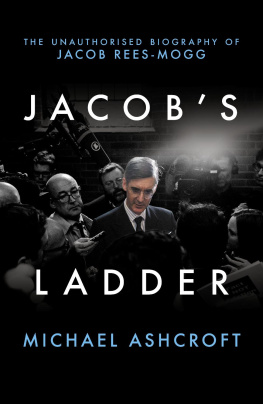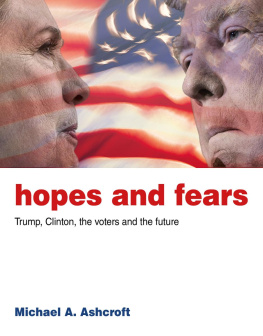Michael Ashcroft - Diagnosis of Defeat: Labours Turn to Smell the Coffee
Here you can read online Michael Ashcroft - Diagnosis of Defeat: Labours Turn to Smell the Coffee full text of the book (entire story) in english for free. Download pdf and epub, get meaning, cover and reviews about this ebook. year: 2020, publisher: Biteback Publishing, genre: Politics. Description of the work, (preface) as well as reviews are available. Best literature library LitArk.com created for fans of good reading and offers a wide selection of genres:
Romance novel
Science fiction
Adventure
Detective
Science
History
Home and family
Prose
Art
Politics
Computer
Non-fiction
Religion
Business
Children
Humor
Choose a favorite category and find really read worthwhile books. Enjoy immersion in the world of imagination, feel the emotions of the characters or learn something new for yourself, make an fascinating discovery.
- Book:Diagnosis of Defeat: Labours Turn to Smell the Coffee
- Author:
- Publisher:Biteback Publishing
- Genre:
- Year:2020
- Rating:4 / 5
- Favourites:Add to favourites
- Your mark:
- 80
- 1
- 2
- 3
- 4
- 5
Diagnosis of Defeat: Labours Turn to Smell the Coffee: summary, description and annotation
We offer to read an annotation, description, summary or preface (depends on what the author of the book "Diagnosis of Defeat: Labours Turn to Smell the Coffee" wrote himself). If you haven't found the necessary information about the book — write in the comments, we will try to find it.
Diagnosis of Defeat: Labours Turn to Smell the Coffee — read online for free the complete book (whole text) full work
Below is the text of the book, divided by pages. System saving the place of the last page read, allows you to conveniently read the book "Diagnosis of Defeat: Labours Turn to Smell the Coffee" online for free, without having to search again every time where you left off. Put a bookmark, and you can go to the page where you finished reading at any time.
Font size:
Interval:
Bookmark:

AFTER THE CONSERVATIVES LOST their third consecutive election in 2005, I published Smell the Coffee: A Wake-Up Call for the Conservative Party. I felt that the Tories had failed to grasp the reasons for their unpopularity and needed a serious reality check if they were ever to find their way back into government. With Labour now having been rejected by the voters four times in a row, I thought it was time to do the same for them.
No doubt some will be suspicious of my motives. Im a Tory, after all indeed, a former Deputy Chairman of the party. There are two answers to that. The first is that the country needs a strong opposition. Britain will be better governed if those doing the governing are kept on their toes. Moreover, at its best, the Labour Party has been a great force for decency, speaking up for people throughout the country and ensuring nobody is forgotten. We need it to reclaim that role.
The second answer is that you dont have to trust me just listen to what real voters have to say in the research that follows. Last month I polled over 10,000 people, paying particular attention to those who voted Labour in 2017 but not in 2019. We have also conducted 18 focus groups in seats Labour lost, with people who have moved away from the party (often feeling that the party had moved away from them). The report includes extensive quotes from these discussions, since they explain Labours predicament better than any analyst could. They are all the more powerful when you consider they come vi from people who were voting Labour until very recently and probably never expected to do otherwise.
We also polled over 1,000 Labour Party members, and conducted focus groups with members of the party and of Labour-supporting trade unions, to see how the Labour movements understanding of the election differs from that of the electorate at large and whether and how far they think the party needs to change.
From election night on, senior Labour figures have argued that the result was all about Brexit with the implication that their lost voters will be back in force once that issue is off the agenda. While there is no doubt that Brexit played a huge part in the election, Labour would be wrong to draw too much comfort from that. Yes, many voted to get Brexit done. But they also thought Labours policy of renegotiation and neutrality was simply not credible: it stemmed from hopeless division and proved the party was nowhere near ready for government.
More serious still for these voters was the principle that Labour had refused to implement the democratically expressed wishes of the people, and often of their own constituents. Brexit therefore became a metaphor for a party that no longer listened to them, taking their votes for granted while dismissing their views as ignorant or backward. They were saying, its the adults talking now, leave the table and well sort it out for you, as one former supporter put it. Another linked Labours apparent attitude on Brexit to Gordon Browns encounter with Gillian Duffy in 2010: He tarred her with the bigot brush rather than listening to what she had to say. Its the same with Brexit. These impressions of a party unready for office and unwilling to listen will not vanish just because the Brexit legislation is complete.
It was reported that Labours official inquiry exonerated Jeremy Corbyn from any blame for the election result. I can only assume this was a compassionate gesture for vii an already-outgoing septuagenarian leader, because no serious reading of the evidence could reach such a verdict. I did not want Jeremy Corbyn to be Prime Minister topped the list for Labour defectors when we asked their reasons for switching, whether they went to the Tories or the Lib Dems, to another party, or stayed at home. Though a few saw good intentions, former Labour voters in our groups lamented what they saw as his weakness, indecision, lack of patriotism, apparent terrorist sympathies, failure to deal with antisemitism, outdated and excessively left-wing worldview, and obvious unsuitability to lead the country.
But the feeling that the Labour Party was no longer for them went beyond Brexit and the Corbyn leadership. While it had once been true that they knew us, because they were part of us, Labour today seemed to be mostly for students, the unemployed, and middle-class radicals. It seemed not to understand ordinary working people, to disdain what they considered mainstream views and to disapprove of success. The pie in the sky manifesto of 2019 completed the picture of a party that had separated itself from the reality of their lives.
As far as many of these former supporters were concerned, then, the Labour Party they rejected could not be trusted with the public finances, looked down on people who disagreed with it, was too left-wing, failed to understand or even listen to the people it was supposed to represent, was incompetent, appallingly divided, had no coherent priorities, did not understand aspiration or where prosperity comes from, disapproved of their values and treated them like fools.
Despite all this, the defectors we spoke to do not rule out returning to Labour. Indeed, many now clearly relish their new status as floating voters, ready to hold governments to account and take each election as it comes. But they wont do so until Labour changes, and most expect the necessary transformation to take years. While viii many Labour members grasp the need to change in principle, it is clear that they would find some of the shifts voters say they want to see such as a less liberal stance on immigration, or much stricter fiscal discipline harder to stomach in practice.
This report is not a road map to recovery: different people can draw sharply different conclusions from the same data, and Im sure that will be the case with this research. But the first step is to come to terms with your starting point. What follows is a pitiless but objective assessment of where that is.
Michael Ashcroft
February 2020
10,107 adults in Great Britain were interviewed online between 14 and 20 January 2020. Data have been weighted to be representative of all adults in Great Britain.
1,073 members of the Labour Party were interviewed online between 10 and 14 January 2020.
Full data tables are available at LordAshcroftPolls.com.
Eighteen focus groups of former Labour voters were held in January 2020 in former Labour constituencies won by the Conservatives in 2019: Bolsover, Bridgend, Burnley, Don Valley, Scunthorpe, Sedgefield, Stoke-on-Trent North, West Bromwich East and Wrexham. Participants had voted Labour in 2017 but stayed at home or voted for other parties in 2019, or had voted Labour in 2015 but for other parties in 2017 and 2019.
Four focus groups of Labour Party members and members of Labour-supporting trade unions were held in London and Birmingham in January 2020.
IN OUR POLLS OF the general public and Labour Party members we offered twelve factors that might have contributed to the election outcome and asked them to say how important they thought each one had been in explaining the result.
Labour defectors who voted for the party in 2017 but not in 2019 believed the top two factors were that Brexit dominated the election, and that Jeremy Corbyn was not an appealing leader. Voters as a whole also considered these the main reasons. Next on the list for defectors were the view that Labour were divided, that the party no longer really represented its traditional voters, and that its election promises were not believable.
Font size:
Interval:
Bookmark:
Similar books «Diagnosis of Defeat: Labours Turn to Smell the Coffee»
Look at similar books to Diagnosis of Defeat: Labours Turn to Smell the Coffee. We have selected literature similar in name and meaning in the hope of providing readers with more options to find new, interesting, not yet read works.
Discussion, reviews of the book Diagnosis of Defeat: Labours Turn to Smell the Coffee and just readers' own opinions. Leave your comments, write what you think about the work, its meaning or the main characters. Specify what exactly you liked and what you didn't like, and why you think so.














